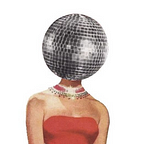Poetic Justice: Examples from real life and literature
Today I will explain what “poetic justice” means and provide examples from real life and classic literature.
According to Wikipedia
Poetic justice is an outcome in which vice is punished and virtue rewarded, usually in a manner peculiarly or ironically appropriate.
In simpler words:
It means that characters or people get what they deserve. Good people are rewarded, and bad people are punished, in a way that matches their actions. For example, a thief might get caught because of their own mistakes, or a kind person might receive help when they need it most.
Some background:
English drama critic Thomas Rymer first introduced the phrase “poetic justice” in his book The Tragedies of the Last Age Consider’d (1678). He used it to explain how stories should encourage good behavior by showing good winning over evil. But the concept of poetic justice has been important since ancient times, so Rymer’s idea wasn’t new, he just came up with a name for it. Some critics also argued that poetic justice was why fiction should be valued in a civilized society.
Poetic justice in life
Now I will talk about An example of poetic justice in real life.
The story of Bernie Madoff, the infamous financier who ran the largest Ponzi scheme in history.
He promised investors high returns in exchange for their investments.
However, rather than investing, he deposited their money into a bank account and paid, upon request, from existing and new investors’ funds.
During the 2008 recession, he could no longer accommodate redemption requests.
His scheme came to an end after his sons turned him over to authorities.
Bernie was convicted of fraud, money laundering, and other related crimes, for which he was sentenced to 150 years in federal prison, the maximum possible sentence, reflecting the severe impact of his crimes on around 37,000 victims across 136 countries, with estimated losses around $65 billion..
Bernie Madoff died in prison on April 14, 2021, at the age of 82.
Poetic Justice for Madoff:
His life of luxury and respect crumbled, leading to a life sentence in prison.
And his sentence is a reminder for our society of the consequences of greed and deception and is an offering of a sense of justice to his victims
Madoff’s downfall also highlighted the importance of ethics and integrity in the financial industry.
In my opinion, this case is a great example of poetic justice, where someone’s deceitful actions lead to a fall and severe punishment, fitting the magnitude of the crime.
Poetic Justice in Classical Literature:
Now, I will give you an example of poetic justice in classical literature, particularly in Oscar Wilde’s most famous work: “The Picture of Dorian Gray”
But first, a quick Plot Summary:
Dorian Gray, a handsome young man becomes the subject of a portrait by the artist Basil Hallward.
Influenced by hedonistic ideologies, Dorian becomes obsessed with maintaining his youth and wishes to remain young forever while his portrait ages instead. His wish is mysteriously granted.
Over his lifetime, Dorian leads a life of moral corruption and sin and also commits a murder, while his appearance remains unchanged. However, his portrait becomes increasingly grotesque, reflecting the degradation of his soul.
Dorian is haunted by the portrait’s hideous transformations and decides to destroy it in an attempt to rid himself of the evidence of his corrupted soul.
But when he stabs the picture, the magic that preserved his youth is undone. He is found lying in his house dead, aged, and disfigured, with the portrait restored to its original, youthful appearance.
Explanation of Poetic Justice for Dorian:
The ending of “The Picture of Dorian Gray” serves as a dramatic example of poetic justice because Dorian’s physical beauty, which he values above all else, is destroyed by his own hand. His attempt to escape the consequences of his immoral actions leads directly to his downfall.
